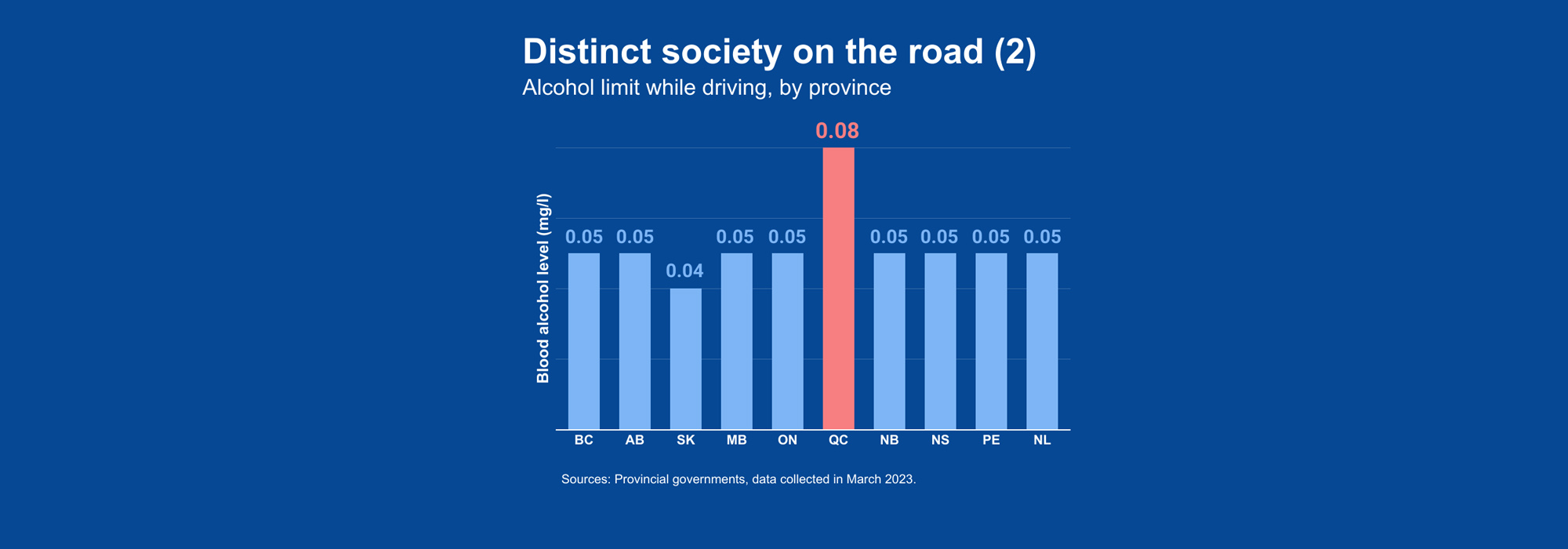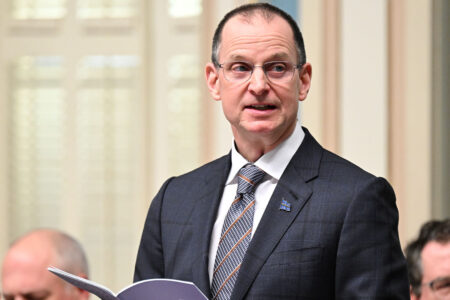
(Version française disponible ici)
Quebec is the only Canadian province that allows drivers to get behind the wheel with blood alcohol concentration (BAC) higher than 0.05 per cent.
Elsewhere in the country, provinces apply administrative sanctions such as licence suspension once the 0.05 per cent threshold is reached, which is a blood alcohol level of 50 mg / 100 millilitres of blood. Saskatchewan has even set the limit at 0.04 per cent.
Quebec relies on the federal Criminal Code limit of 0.08. The Canadian code is one of the most permissive in the world, and Canada has a terrible record when it comes to alcohol-related accidents.
Except for the United States and England (and Quebec), the maximum BAC for driving in developed countries is 0.05 per cent, and even lower.
The limit is 0.02 in Sweden, Poland and Ukraine. In the Czech Republic, Slovakia, Hungary and Romania there is zero tolerance.
The effects of alcohol on driving are well documented. The risk of an accident increases exponentially with the amount of alcohol in the blood, as noted in a report published in La Presse.
Quebec’s public policies therefore stand out in two ways, by being at odds with both scientific data and best practices.
Sources for blood alcohol levels by province:









